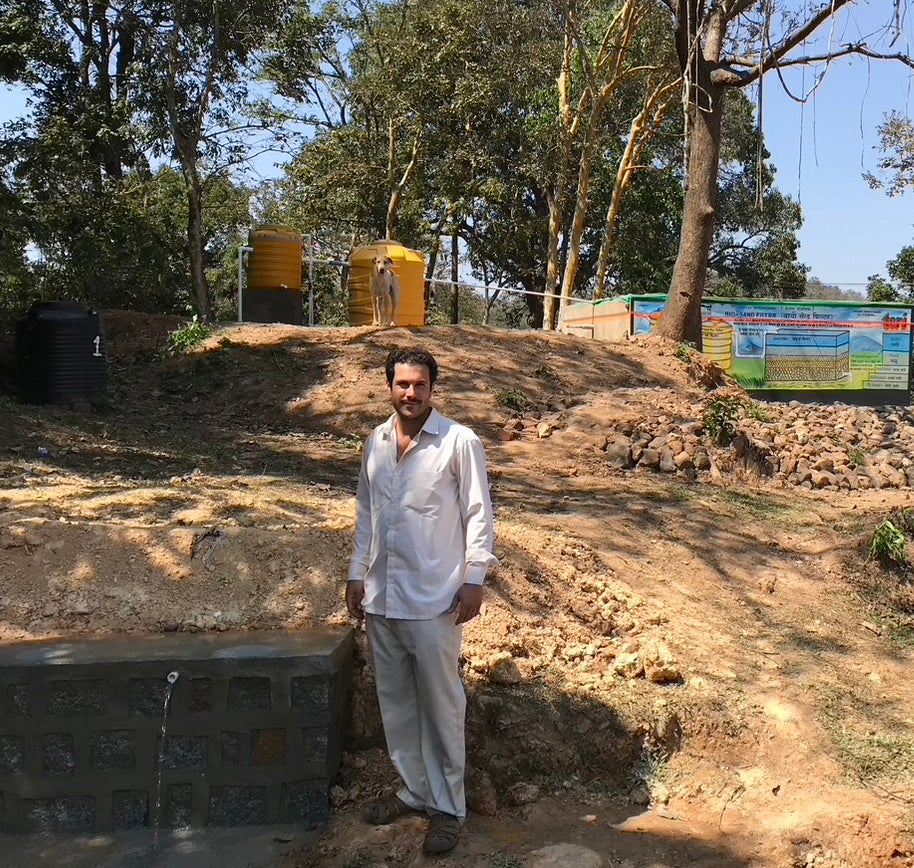KINGSTON, R.I. – June 4, 2020 – Miles Schelling has had an uncommon interest in India ever since traveling there with his parents while in the seventh grade.
He was awarded a grant as an undergraduate mathematics major at Bates College to study music in New Delhi, and he returned a year later to teach music in a remote village in the Himalayan mountains. As a graduate student studying geosciences at the University of Rhode Island, he traveled to India twice more to learn about the challenges small communities face in obtaining clean drinking water.
Thanks to a Christianson Grant from the InterExchange Foundation, Schelling is headed back to India once again after completing his URI degree in August. This time he will work with The Energy and Resources Institute in the city of Panjim to continue his work to provide clean drinking water to a local village.
“The first time I went there with URI, we visited a remote mountain village, Nersa, where we learned that people were getting sick during the monsoon season because their water was contaminated with E. coli,” said Schelling, who grew up in Putney, Vermont. “When I got back to the States, I thought it was a powerful experience and I wanted to go back to work in the village as part of my master’s thesis with Professor Tom Boving.”
In 2019, he spent four months conducting a survey of village residents in partnership with Jeremy Mack, a colleague at the University of Southern Maine. They learned that 73 percent of the residents had been sick in the previous year due to the contaminated water, and everyone they surveyed reported experiencing water shortages during the dry season.
“I tested the water quality in the village and found it heavily contaminated with E. coli,” Schelling said. “So last year I constructed a massive water filtration system using a biosand filter that’s now filtering the water for the village.”
Unfortunately, the pipeline that delivers water to Nersa from a mountain stream two miles away has been damaged by a monsoon, burned by fires, and eaten by wild pigs. It leaks and is no longer a viable water delivery system.
Schelling will use his Christianson grant funding to return to Nersa to continue testing his filter system and survey the residents again. If he can attract the necessary funding, he also hopes to rebuild the water pipeline.
“I was hoping to go in October, but the pandemic has delayed my trip,” he said. “I’ll go whenever it’s safe for me to go and probably stay for six months.”
When he returns home again, he plans to seek additional international water development opportunities.
“I’m not yet sure how best to approach that, so I may also do work as an environmental consultant focusing on more local issues like river monitoring and contaminated groundwater from gas stations,” he said, noting that he will also continue his work as a math tutor. “But I don’t make lists, and I don’t set goals. We’ll see where it leads.”

